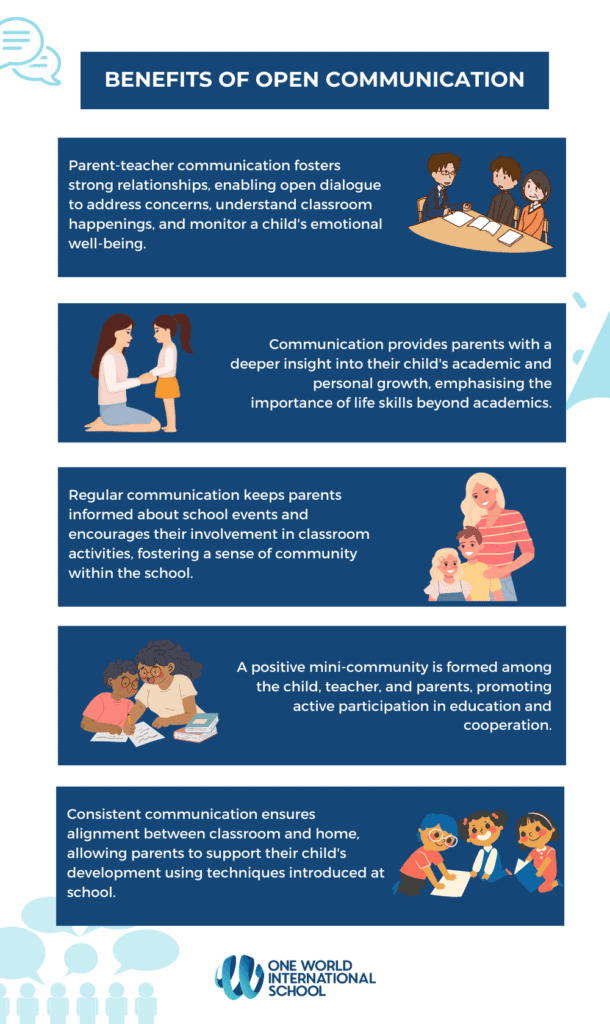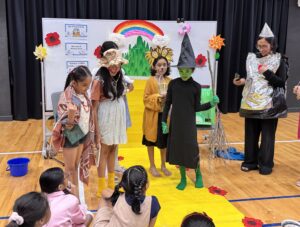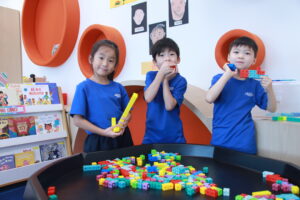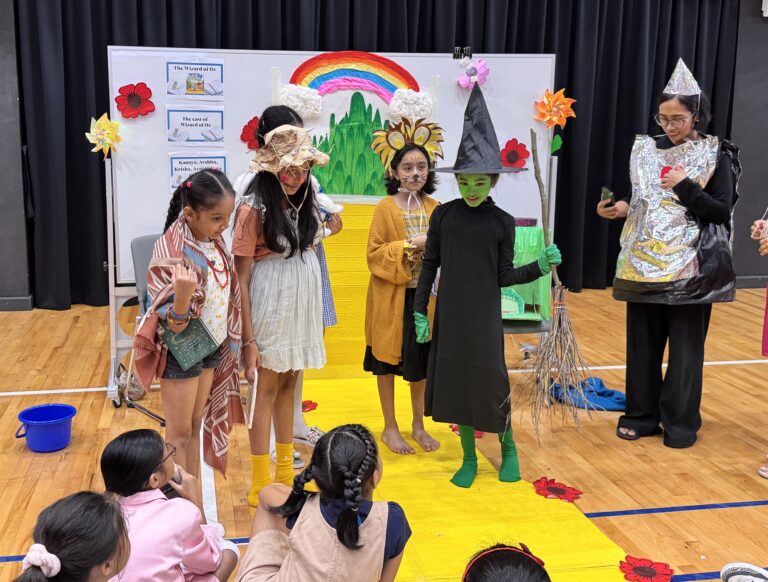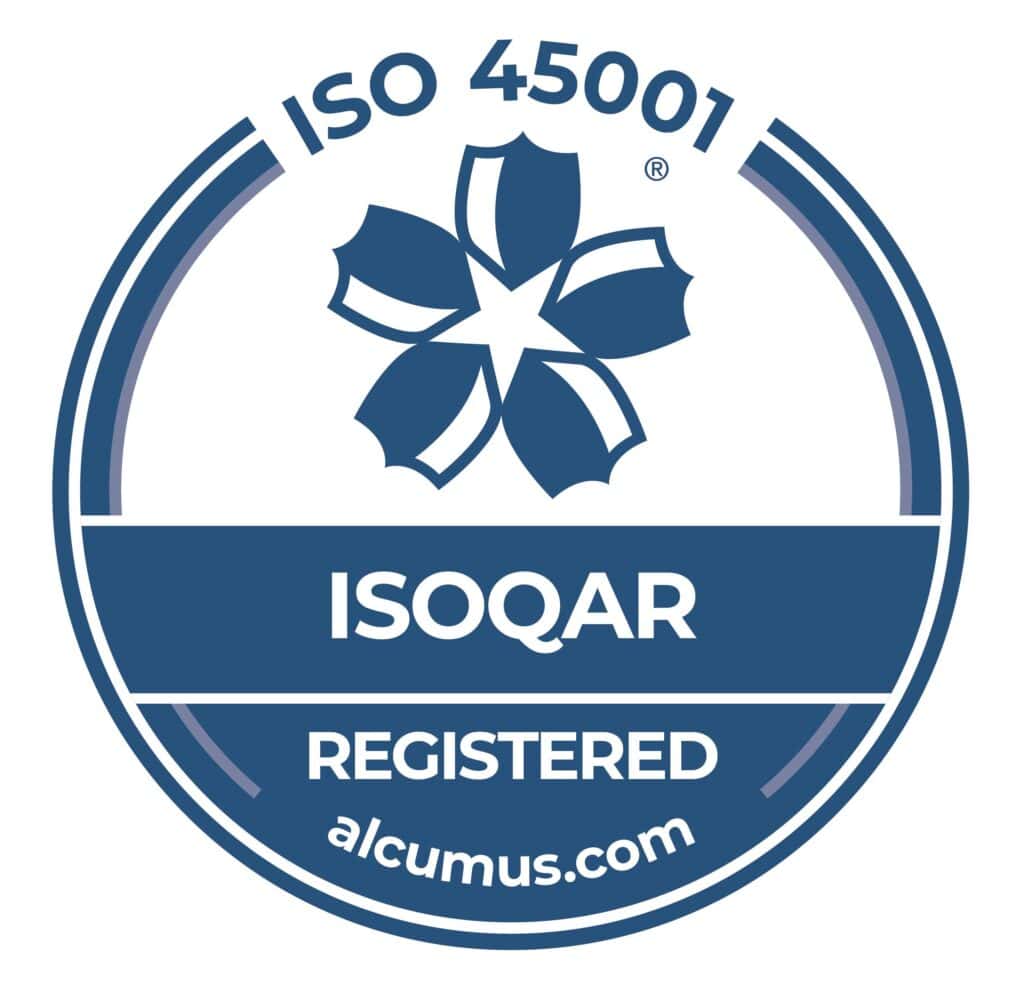Consistently improving communication between parents and educators at One World International School is more than just a goal. It’s a practice that we live out on a daily basis. Our administrators and instructors recognise the importance of open communication in helping a child meet or exceed their own goals. They do everything they can to ensure that parents are able to communicate with the school and that the staff are always on hand to answer questions or give support.
“Parents who are supportive and proactive about their children’s education are more likely to have children who succeed and do well at school,” said Dawn Ross, an early childhood educator. “I think it is also important for the school to be transparent and clear about progress and the achievement of each child in their class when talking to the parents.”
Benefits of Open Communication
Effective communication between parents and teachers is fundamental to fostering an educational environment that supports students both academically and personally. Some of the benefits of doing so include:
Builds Trust and Comfort
Open communication allows parents to build relationships with their child’s teacher. Parents are able to feel comfortable coming to their child’s teacher with any concerns they may have, and teachers can explain what is happening in the classroom in order to increase understanding. It also opens up two-way communication. For instance, if a child has become quiet and reserved at home, parents may be worried that it is something at school that has caused this. By being able to communicate openly, both the teachers and the parents can keep a close eye on the child, and they will likely pick up why the child is not completely happy. An example of this could be that their friend has moved away recently and they are missing them. Teachers are in a brilliant position to be able to support children to integrate with others in their class to build friendships, and parents are there to offer support when at home and can help children remain in contact with their friends.
Enhance Parental Insight Into Child’s Development
This communication helps parents better understand their child’s educational progress. They are able to understand the journey that their child will go on during the year, what topics they will be studying, and how different skills will be developed. Parents will be better able to appreciate that OWIS teaches their children life skills, focusing on their emotional development and social needs beyond just academia. Plus, being in the perfect position to monitor their child’s progress, parents will have important insight that can help them build their children into strong, confident learners with an ongoing dialogue with the teachers.
Foster Parental Involvement and Engagement
Regular communication keeps parents informed of what’s happening at the school and allows them to get involved in classroom life. When teachers and parents communicate regularly, teachers can provide parents with information about school events and classroom volunteer opportunities. Parents, when they are made aware of these opportunities, often find themselves excited to participate and be a part of the classroom. At OWIS, our international school in Singapore is a community, and we want parents, families, teachers, administrators and students to feel that they each impact the school’s development. By encouraging everyone to get involved, whether that be by supporting a school play, making cakes for a charity fundraiser or offering time to attend extracurricular activities, this all makes a difference to the overall experience of OWIS.
Create a Supportive Learning Triangle
Effective communication establishes a mini-community among the students, teachers and parents. This triangular approach to communication allows the child to play an active role in their own education, and it ensures that all parties involved are on the same page. It also gives ownership to the child to want to improve their knowledge and skill set. It makes them understand the importance of working together and utilising other people’s knowledge to develop their own. Generally speaking, a positive relationship can develop when parents, children and teachers actively communicate with one another.
Ensure Consistency in Educational Approaches
Consistent communication between home and school ensures that educational strategies are synchronised. Ultimately, both the parents and teachers need to work together to improve the personal, academic and social development of the child. Parents are offered ways of integrating opportunities at home with the experiences that their child has while at school. Some students may find it hard to concentrate for longer periods, so teachers may have taught them focus management techniques for this. By utilising these at home as well, it gives the child continuity and allows them to practise these techniques in a range of situations. Through communication, both parties can use a consistent approach that will benefit the individual learner.
Parent-Teacher Communication Examples
Parent-teacher communication can take on various forms, each idea tailored to enhance the educational experience and ensure that parents are thoroughly informed and actively engaged in their child’s educational journey.
Utilise Digital Tools for Efficiency
Digital tools like Google Forms can be utilised to gather parental feedback and apps for daily updates to facilitate seamless communication. This innovative digital method allows for quick and efficient exchanges between parents and teachers, ensuring that everyone stays informed about students’ progress and school events without delay.
Weekly Newsletters
Weekly newsletters sent home by teachers are a cornerstone of parent-teacher communication. These newsletters provide updates on what students are learning, highlight important dates such as tests and project deadlines, and mention upcoming school events. This regular communication keeps parents informed about their child’s academic life and school happenings, ensuring they can support their child’s education at home effectively.
Parent-Teacher Conferences
Scheduled parent-teacher conferences provide dedicated time for in-depth discussions about students’ progress, challenges, and successes. These meetings are crucial for setting goals, addressing concerns, and planning teaching strategies to support students’ learning and development. They offer a personalised approach to communication, giving both teachers and parents the opportunity to collaboratively enhance the student’s educational experience.
Classroom Visits and Open Houses
Inviting parents to visit the classroom during open houses or specially arranged visit days helps them visualise their child’s learning environment and understand the educational methodologies in practice. These visits can include demonstrations of classroom activities, showcasing student work, and discussions about the curriculum. This direct involvement helps parents connect with the school community and gain a deeper appreciation of the educational processes.
Challenges of Parent-Teacher Communication
Effective parent-teacher communication is crucial but faces significant challenges that can hinder its success and impact students’ educational experiences. For example, time constraints due to parents’ work commitments, especially for those with inflexible schedules or non-traditional work hours, often limit participation in school activities and regular interactions with teachers.
Cultural and linguistic differences can also pose barriers, as varying cultural norms about parental involvement and language barriers for parents who speak English as an additional language may lead to misunderstandings and reduced engagement.
Additionally, technological disparities, known as the digital divide, prevent equal access to online learning resources and communications, exacerbating challenges during remote learning periods. Moreover, negative past experiences with educational institutions can foster distrust and disengagement among parents, affecting their children’s attitudes toward education. These multifaceted issues require thoughtful approaches and flexible communication strategies to ensure all parents can effectively engage with their children’s education.
Practical Tips for Parents
Here are some practical tips for parents on how to initiate and maintain this vital connection:
- Initiate Early and Often: Don’t wait for a problem to arise before reaching out to your child’s teacher. Start the school year by introducing yourself and establishing a positive, proactive communication channel. Attend all available open houses and scheduled meetings to get a good understanding of the school environment and expectations.
- Regular Updates: Make a habit of asking for regular updates on your child’s progress. This can be done through email, phone calls, or scheduled face-to-face meetings. Many schools have digital platforms or apps designed for parent-teacher communication—make sure to utilise these tools effectively.
- Be Responsive: Always respond to communications from the school in a timely manner. Whether it’s a note sent home, an email, or a message via the school’s communication app, showing that you’re actively engaged demonstrates your commitment to your child’s education.
- Prepare for Meetings: When preparing for meetings with teachers, write down any questions or concerns you might have beforehand. This ensures that you cover all important points and respect the teacher’s time. Also, discuss what you can do at home to support learning and development.
- Positive Feedback: While it’s important to discuss concerns, also provide positive feedback. Teachers appreciate knowing when things are going well. This builds a stronger, more cooperative relationship.
- Follow-Up: After meetings or communications, follow up on discussed actions. This shows that you are committed to your child’s education and value the teacher’s efforts. It also helps keep track of the progress being made.
Keeping Communication Channels Open
At OWIS, we keep the lines of communication open in various ways throughout the school year. One of the most important ways through which we ensure there is effective communication between parents and teachers is through our weekly updates and parent-teacher consultations. We always appreciate feedback and we encourage parents to be highly involved in their child’s education and development. We encourage them to ask questions, attend school events and communicate with our staff.
For more information about communication efforts at OWIS, contact us today.
(This blog was originally written in collaboration with Mr Adam Meyerhoff, former Senior Coordinator (Teaching & Learning) – Secondary School, OWIS Nanyang.)

